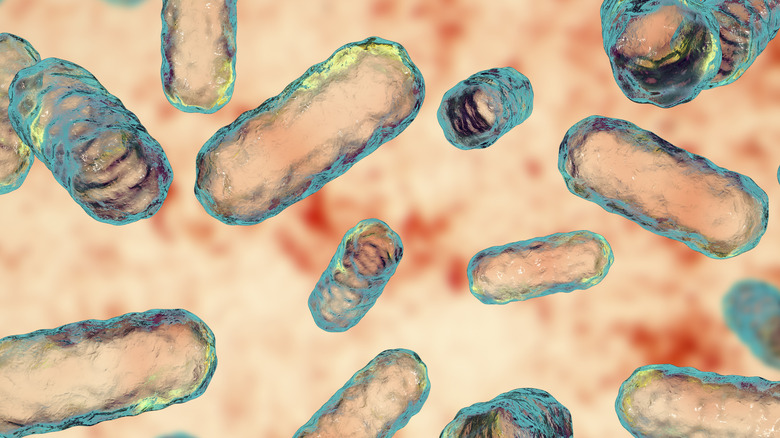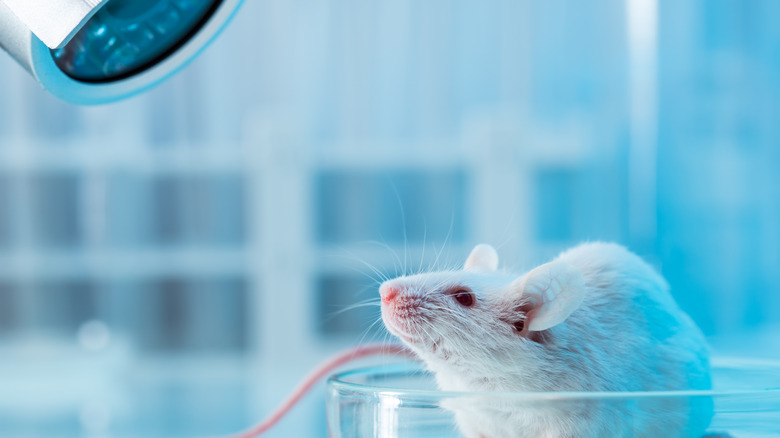This Genetically-Modified Bacteria Could Be The Next Breakthrough In Cancer Treatment
Since the dawn of modern medical science, cancer has remained humanity's mortal enemy. While many breakthroughs have been made in the field of cancer treatment, there is still much we don't understand about the disease, which makes both treatment and prevention exceptionally difficult, expensive, and physically excruciating for patients. Many potential treatments have cropped up over the decades, some attempting to utilize the body's internal processes, others utilizing some uncertain medicine, but nothing has yielded consistent results.
However, a slightly younger field of study may present a potential weapon against cancer. In recent years, interest has increased in the human microbiome, an ecosystem of friendly microscopic flora and fauna that dwells on and in our bodies. A recent study out of Stanford University has shown that these tiny critters aren't just microscopic hitchhikers, though, they may actually be one of our most formidable weapons against all kinds of diseases, cancer included.
Microbes versus tumors
Recent medical research has determined that the residents of our microbiomes can have a direct effect on the triggering of our immune responses. Our bodies are their homes, after all, so it makes sense that they would stimulate our immune systems to fight back if a threat like an infection or, indeed, a tumor were detected.
In an effort to measure the exact efficacy of this immune boost, a team of scientists at Stanford University, led by Michael Fischbach, obtained samples of S. epidermidis, a common microbe found on the surface of human skin. By inserting new gene codes into the samples from cancer cell proteins, the microbes were made to recognize the presence of cancerous symptoms, i.e. tumors.
For their test, the scientists injected skin cancer cells into mice, then swabbed the injection spots with samples of the microbes. One group of mice was given the modified microbes, while another was given unmodified microbes as a control. After a few weeks, cancerous tumors became distinct in the control mice. The mice with the modified microbes, however, were virtually tumor-free. As an added bonus, the scientists swabbed the control mice with the modified microbes, and their tumors began to recede.
Will it work on humans?
While these findings are incredibly promising, there is still a long way to go before scientists can attempt human testing. First, they'll need to find a good test microbe, as S. epidermidis may not produce the same pronounced immune response in humans as it did in mice. Secondly, they'll need to locate a catch-all cancer protein that can be used to prep the microbes, a hangup that has proven problematic for other potential cancer treatments due to the disease's variability.
If they can get the necessary components, though, the scientists may be able to begin human testing of so-called "designer microbes" in the next few years. Not only could this be the silver bullet against cancer we've been looking for, but it could be the first step in a new wave of stronger, less intrusive medical treatments.
For more information on Fischbach and his team's findings, check out their full report published in the journal Science.


